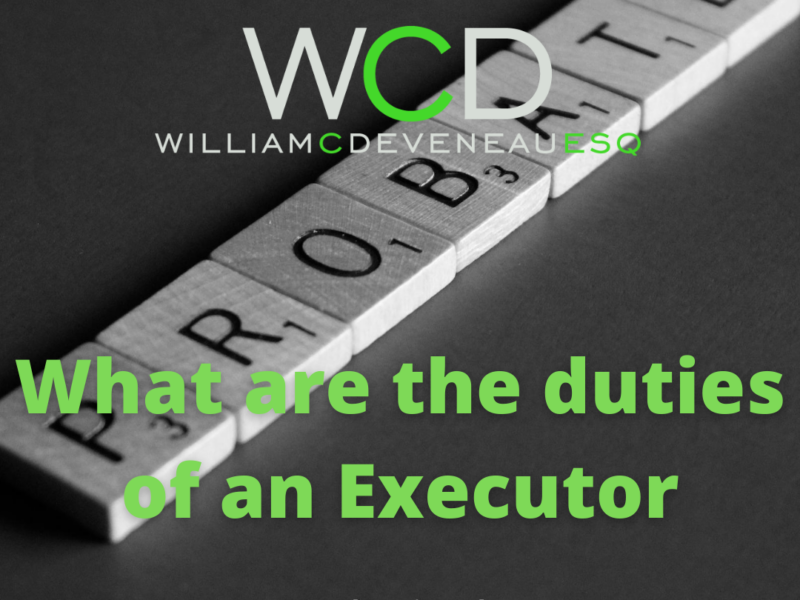This article or post will describe the duties of an executor. The executor is the person that you appoint to execute all your wishes in your last will and testament. The first thing the executor does is, he or she takes your will and presents it to the probate court in the form of a petition, petitioning the court to open your estate. After that, if the Court allows the petition, they’re appointed executor.
Once appointed, they need to gather and locate all of your assets that are in your estate, and they need to protect those assets. After they begin gathering and locating the assets, the next step is to identify all the debts that are outstanding and find any additional creditors. To do this, they typically file a notice to creditors and publish it in the local newspaper for a few months. This ensures everybody that you possibly owe money to comes forward. If there are creditors that don’t make a claim within that window, their claim is typically disallowed.
After they’ve identified all the assets and all of the debts and creditors, they need to make sure all the taxes are paid. If there’s any income to the estate, they will need to make sure they set aside enough to pay any estate income taxes. If the value of the estate is high enough, they will need to set aside funds for the estate taxes.
The next step is to move forward with distributing assets to all the beneficiaries of the will. In this case, they would ask the court if they could distribute the certain amounts listed in the will, or the percentages listed in the will. The executor will follow all the listed distributions to the specific beneficiaries you listed.
Finally, they will file a final accounting with the court listing all the income that came in, all the expenses that went out, and how the estate has been distributed.
This is a basic overview of what the executor does, and a bare-bones description of what they do. It can be a time-consuming task to try to find all the assets, to try to make sure all the creditors are done. It does take time, but you’re just executing the wishes and fulfilling the wishes of the person that appointed you. If you have more questions about this or other estate planning topics, you can come to my website, wcdesq.com, or call my office, (802) 442-9800. Thank you.
William C. Deveneau is an attorney practicing in Southern Vermont, including Bennington and Manchester, and New York, including Albany, Colonie, Hoosick Falls, and Troy, and Massachusetts, including the Berkshires and Central Massachusetts, including Athol, Orange, Gardner, and Fitchburg.


 Estate Plans need to be Reviewed Periodically
Estate Plans need to be Reviewed Periodically